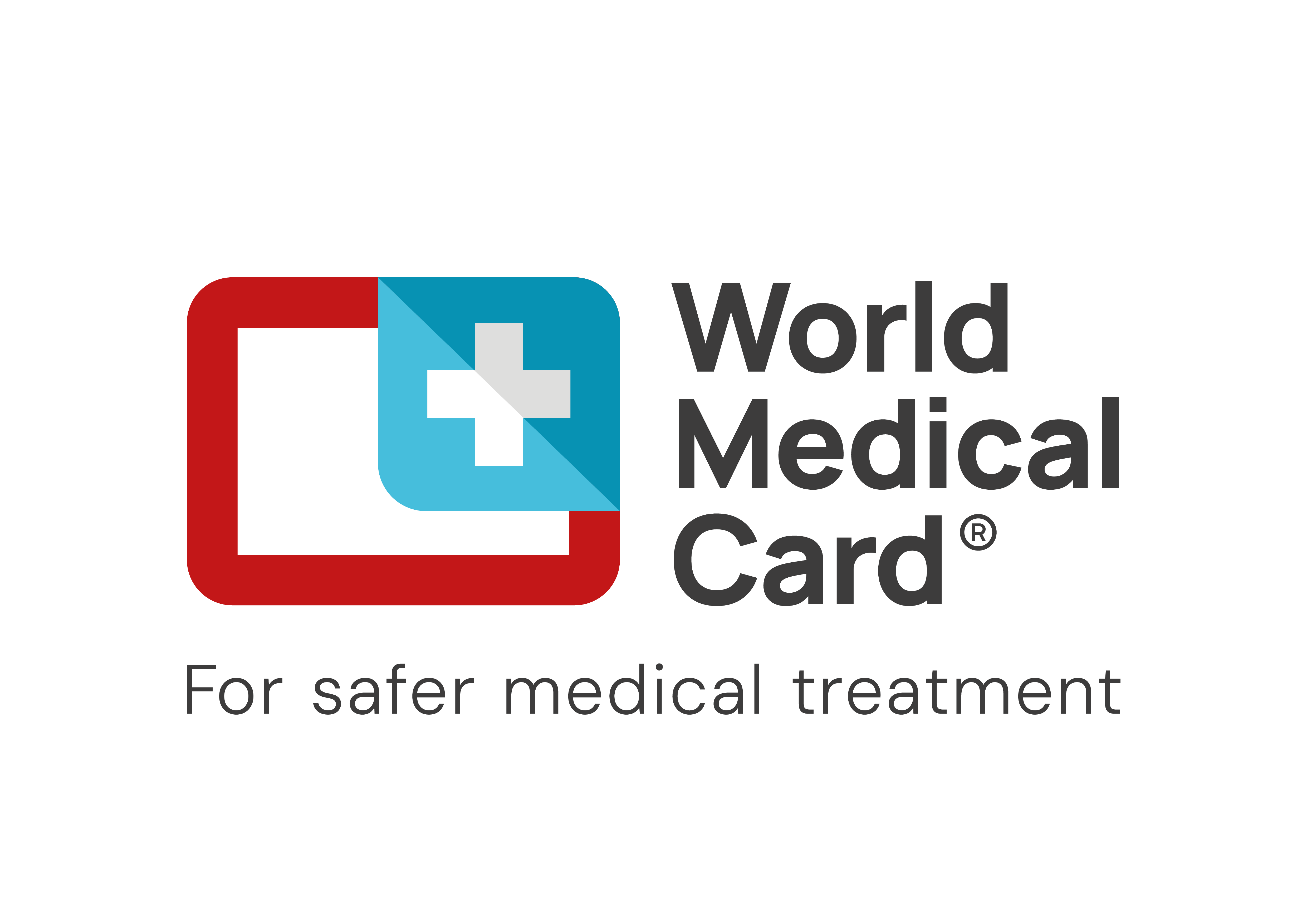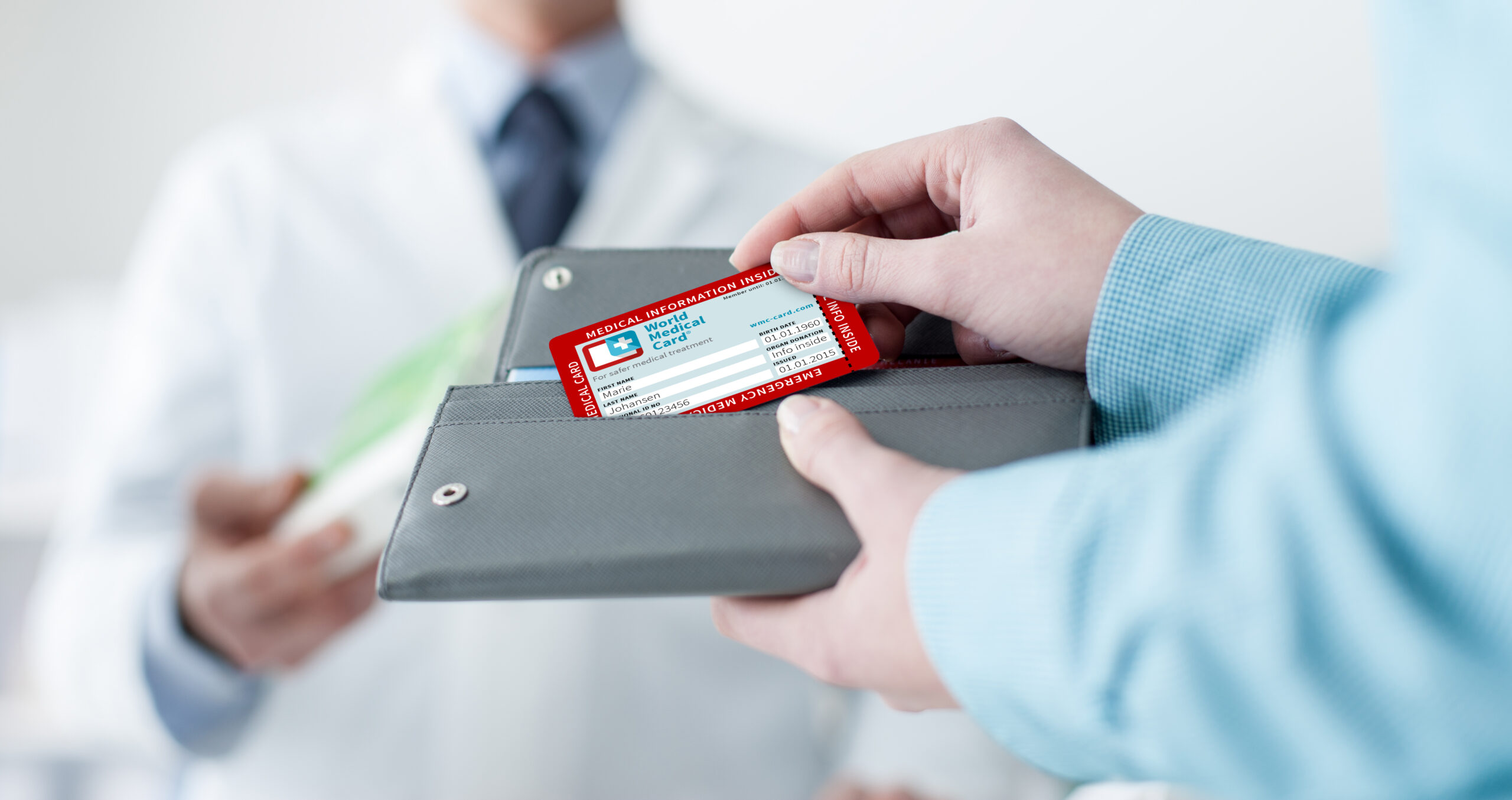Flying with a heart condition? There are precautions you ought to take.
For all travellers with heart conditions, it is recommended that they carry a copy of a recent electrocardiogram (ECG). People with pacemakers, implantable defibrillators, or coronary stents should have a card or doctor’s letter documenting the presence, type, location, and electronic characteristics of the implanted device.
An implanted metal device may trigger an alarm as the person passes through electronic security, so the more documentation you have, the smoother and safer your journey will be.
This is where World Medical Card® could be helpful.
The World Medical Card® is a physical medical alert card and App that holds your vital medical information. Medical professionals and first responders can use the information it contains to provide you with fast and accurate treatment in case of an emergency. This helps minimise the time before you receive treatment anywhere in the world.
Developed using the World Health Organization’s global standards codes (ICD-11 and ATC), the World Medical Card® ensures that health professionals and pharmaceutical personnel globally understand your condition and requirements.
Members sign up and input their up-to-date medical information, including medicines and prescriptions, surgeries and implants, vaccines, allergies, donor status, X-rays or hospital records, photos of non-prescription medications, diagnoses and insurance details. The date will then show on the physical card and in the App, making receiving treatment speedy and accurate.
According to Medical Repatriation UK, here are some precautions you can take if you’re flying with a heart condition.
- Discuss any new symptoms/concerns with your doctor before travelling
- Carry an ample supply of all medications, properly labelled and stored in your carry-on luggage
- Bring a copy of a standard electrocardiogram (ECG) if you have an irregular heartbeat or a pacemaker
- Carry contact information of pacemaker and ICD manufacturers, as well as local representatives in the destination country
- Avoid alcoholic beverages and stay hydrated during your flight
- Request aisle seating if you are at risk of deep venous thrombosis. This allows you to walk around and stretch your legs without disturbing other passengers
- Travellers over the age of 50 should wear below-the-knee compression stockings when flying for more than eight hours if they have one or more risk factors for DVT, such as congestive heart failure, large varicose veins, obesity, pregnancy, use of oral contraceptives or hormone replacement therapy, or recent major surgery
- Consider purchasing medical evacuation insurance if your health insurance does not cover medical evacuation
For members of World Medical Card®, it’s very easy to not only add your heart conditions and medications but also upload documents, such as standard electrocardiogram (ECG) and pacemaker and ICD manufacturers.
The World Medical Card® could save your life. Find out more here.







